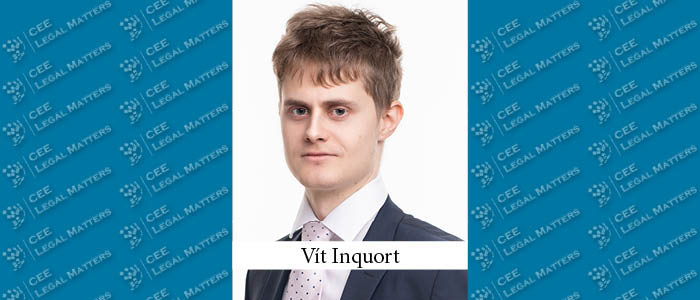Regulation (EU) 2023/956 of the European Parliament and of the Council of 10 May 2023 (the “Regulation”) establishes a carbon border adjustment mechanism. The Regulation imposes new obligations on importers of selected goods from third countries into the EU. The aim of this article is to help entrepreneurs identify whether the Regulation applies to them and, if so, what are the most important obligations it imposes on them.
Who does the Regulation apply to
The Regulation applies to anyone who is:
- an importer established in the EU who imports from a third country into the EU the goods listed in Annex I of the Regulation (in particular aluminum, cement, iron and steel, fertilizers, electricity and hydrogen), or processed products thereof (the “Goods”) and lodges a customs declaration with a proposal to release the Goods into free circulation;
- a holder of a permit to lodge a customs declaration, who declares the import of the Goods;
- an indirect customs representative who lodges a customs declaration with a proposal to release the Goods into free circulation for an importer established outside the EU.
The Regulation does not apply to entrepreneurs importing the Goods exclusively within the EU.
Entrepreneurs who import the Goods from countries outside the EU can use a third party to lodge the customs declaration for them, and in this case the obligations set out in the Regulation will be fulfilled by such third party (customs representative).
What obligations does the Regulation impose
Obligations under the Regulation can be divided into two phases, depending on the time frame in which they need to be fulfilled.
Phase 1: Obligation to report embedded emissions
This phase already started on October 1, 2023 and will last until December 31, 2025. The essence of this first phase is the obligation to report on so-called embedded emissions. The Regulation uses the abbreviation “CBAM report”.
According to the Regulation, embedded emissions are direct and indirect emissions related to the production of imported Goods. The Regulation establishes specific methods and procedures that must be followed when calculating embedded emissions.
The first reporting period is the fourth quarter of 2023. The CBAM report for the first reporting period must be submitted no later than January 31, 2024.
The CBAM report must be submitted to the transitional CBAM registry (CBAM Trader Portal) under the European Commission. The transitional CBAM registry has been launched.
In order to ensure identity verification, access to the registry is only allowed to importers or indirect customs agents who are registered in the UUM&DS system (the EU-wide Uniform User Management and Digital Signatures system). Registration in the UUM&DS system is carried out by the Customs Administration of the Czech Republic, therefore it is necessary to apply for access to the CBAM Trader Portal via an electronic form available on the website of the Customs Administration.
CBAM reports are submitted electronically.
Sanctions for non-compliance, incorrect or incomplete submission of the CBAM report are determined by individual Member States. According to the Regulation, however, it must amount to EUR 10 to EUR 50 per ton of undeclared embedded emissions. These sanctions have not yet been established in the Czech Republic, but it can be expected that they will be established in the future.
Phase 2: Obligation to pay for certification of embedded emissions (carbon tax)
This phase will start on January 1, 2026. Therefore, the obligations applicable to this phase do not apply yet, but it makes sense to start preparing for them now.
In this phase, in addition to the above-mentioned obligation to report the embedded emissions, the obliged persons will also have the obligation to purchase certificates to take into account the emissions embedded in the imported Goods, i.e. to pay the carbon tax.
Recommendations
At this point, entrepreneurs can be advised to answer the following questions:
- Which of the products that the entrepreneur imports from third countries does the Regulation apply to?
- Entrepreneur who do not import any such products will not be affected by the Regulation.
- Entrepreneurs who import such products should:
- Identify which specific requirements for reporting greenhouse gas emissions apply to individual types of products.
- In case of a group with several entities that import goods from third countries and are subject to the Regulation consider simplifying the structure of the import, whereby all matters related to the Regulation, including the processing of CBAM reports, calculations, etc., would be arranged for only by selected entity(s).
- Consider changes in the supply chain that could reduce the number of entities affected by the Regulation.
It follows from the above that the first step should be to assess to what extent and regarding which products (if any at all) the Regulation applies to the entity in question.
On the basis of this assessment, it is also necessary to identify specific obligations and select a corresponding approach for the future, or adapt.
Conclusion
The Regulation is effective as of October 1, 2023, and obliged entities must submit the first CBAM report by January 31, 2024. From January 1, 2026, the obligation to pay the carbon tax will apply. Importers of the Goods from third countries should therefore assess as soon as possible the extent to which they are subject to the CBAM reporting obligation and should ensure access to the CBAM transitional register as soon as possible. It is also recommended to consider the possible introduction of additional measures for maximum efficiency and minimization of costs.
By Vit Inquort, Junior Associate, Eversheds Sutherland


